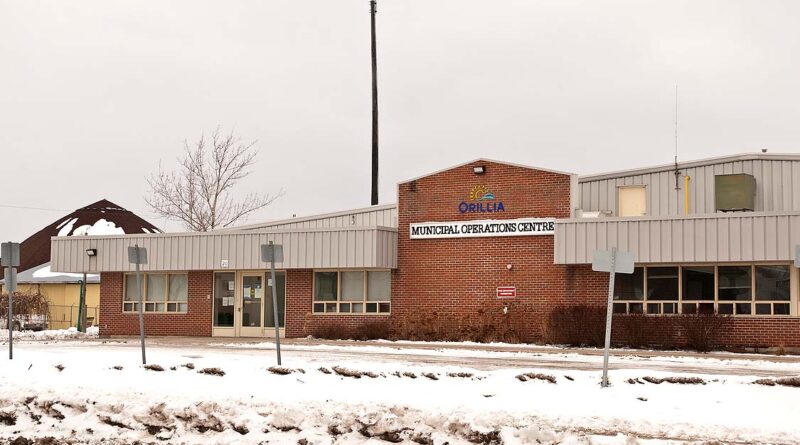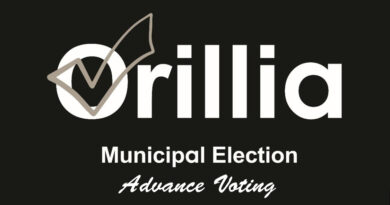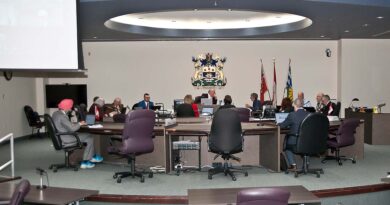Strike! Now What?
By John Swartz
The idea City of Orillia staff at the operations center (roads, snow clearing), landfill and water in and out treatment centers were going on strike took many by surprise last Friday. There hadn’t been any public indication things were a miss. So what got us to here?
As demonstrated time and again by other strikes, one side is willing to talk about the issues, the union, and the other side, the City, won’t say much.
“I hate when I can’t fully answer a question, but we just don‘t want to negotiate in the media. All I can really say is what got us to this particular point, negotiations broke down when the union team, the negotiating team, rejected the City’s final offer. Sorry, the City’s last offer,” said Mayor Steve Clarke.
Clarke wouldn’t say what the offer was. Was it money, or other things 58 staff were willing to strike over, especially knowing there would be no strike pay?
“We just want to respect the process.”
To some degree, this leaves illuminating the issues a one sided affair.
Tim Pitts, the business representative for Local 636 of the International Brotherhood of Electrical Workers (IBEW), has this contingent of City staff under his portfolio (other City staff are also represented by the IBEW, but are different bargaining units) along with 14 other bargaining units in Ontario. They wanted a 4 year contract. Money is one issue, he didn’t say how much.
“I can’t remember the numbers of the top of my head, I hate to give you the wrong numbers. The City of Orillia has been behind. It’s become a training grounds. What’s happening is these poor guys that are driving your snowplows and working your water department are getting new hires, they’re training them, and once they are getting trained they are going to places like Oro-Medonte and Severn because they are getting a better wage package there,” Pitts said.
Some staff have complained privately Orillia is surrounded by municipalities paying higher wages for the same work. Clarke wouldn’t say if meeting pay scales other municipalities have is part of negotiations.
“Certainly we are constantly looking at what our comparator municipalities offer in terms, and we always want to make sure we are competitive. I’m not saying that has anything to do with the negotiations,” Clarke said.
Work conditions are also a factor which lead to the strike.

“I would say yes. It’s not a happy workplace, no. I can’t really say that for all areas, but I know down at the MOC (Municipal Operations Center on James Street), that’s been pretty toxic.”
“I took this unit over in 2017 and it’s never been good,” he said of tension between staff and direct supervision.
When asked directly about tension between staff and management being a factor in this strike happening, Mayor Clarke said:
“Anything that may or may not have been talked about at the negotiation table is between the union and the City representatives and we just don’t want to bring it into the media. I think it wouldn’t do the process any good. But I have heard comments like that,” Clarke said.
The union can’t deal with every workplace complaint by way of a contract Pitts said.
“There’s work schedules, winter control, it’s a bunch of things,” which can be addressed in a contract Pitts said. But other things can’t. The union can’t negotiate who fills management roles, but they can negotiate the conditions which management and staff have to operate under. He spoke of bereavement leave issues that weren’t followed, sometimes having to take issues to the top of the management chain to get satisfied. There is also a favouritism factor he wants addressed.
“We are working on those in negotiation, we’re trying to do a lot of things so certain supervisors can’t say yes to people they like and no to people they don’t like. That type of thing. We’re trying to put those mechanisms in place,” Pitts said.
“To be honest with you, upper management was shocked by some of the stuff we were laying out to them. Once we told them this goes on it was, oh, OK. They’re not bad people, upper management. I know they’ve got jobs to do and a mayor and council to answer to, but we’ve got to fix this and get these people back to work as soon as possible.”
When asking about the grievance history of the last year, which can indicate the level of dissatisfaction with management among staff, reveals an unusual reply.
“(It’s) not as high as you would think. Our union’s philosophy is kind of a mutual gains operation. We want to work things out with management before it gets to the grievance stage. There’s time built in there for discussion. We try to work a lot of this stuff out,” Pitts said. He said there four were grievances filed last year.
Events Leading Toward Strike
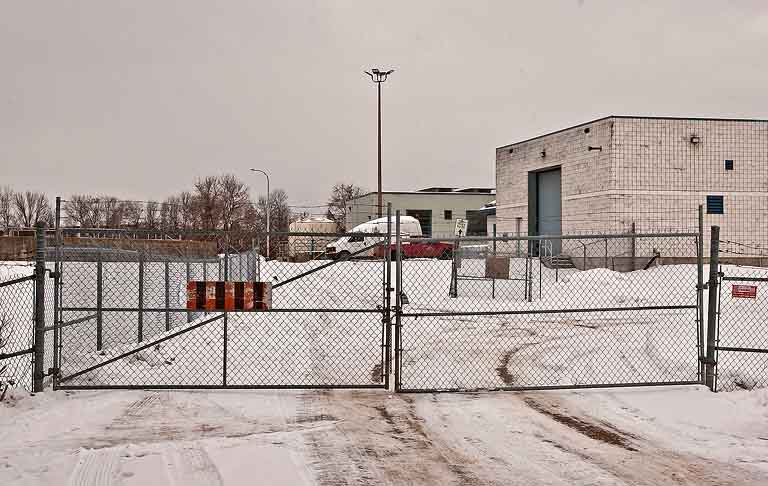
From the union’s side, Pitts outlined the steps taken to get a contract without having a strike.
“What the City did, back when we had our first vote (October 2020), they gave us kind of a final offer, take it over leave it; we took it back to the membership and they voted it down 100%. Immediately afterwards I conducted a strike vote and we got a 100% strike mandate.”
“Then we went back to the City and said, hey, this went down in flames and we filed for conciliation. The conciliator came in and we started going back and forth a little bit and then they (the City) gave us another final offer. It wasn’t much different from the first. We told them that. We said, “look, we don’t want to waste your time. We’re going to go back to the membership and this is going to go down again.””
“Then they (the City) asked for the Ontario labour relations board to conduct a supervised vote. I think maybe they didn’t believe us. The ministry came in, conducted a vote. It was over two days. It started at noon February 3rd and finished at noon February 4th where everybody voted. We had two members accept and 56 reject.”
“We were supposed to have mediation that day on February 3rd. We filed a ‘no board report’ which put us in a legal strike position for this past Saturday. We were hoping to have that mediation discussion.”
The phrase, no board report, is often used by unions (and not as often by management) and not often explained. Simply, it means a conciliator was unable to get an agreement from both sides and no conciliation board (or panel) is requested to be created by a higher level of government, in this case the province. Conciliators are assigned to negotiations by the province’s labour board, so in effect appointing a board increases the number of people working in the middle to get an agreement, and no board means leaving things in the hand of one person to try and get both sides to agreement. Filing the report brings into play a strike deadline, which in this case was 12:01 a.m. last Saturday.
Since Saturday, and as of Monday evening, Pitts said there has been no direct communication with the City.
“I did talk to the conciliator who is involved in our case from the ministry of labour. He wants to get a deal. He sent me an email and said, is there any chance you guys want to meet and try to work out a deal?” I said, “Definitely we want to meet.” He said, “OK, I’ll contact the City.” They told him no in short order because I got an email about ten minutes later saying they weren’t coming to the table.”
When Will It End
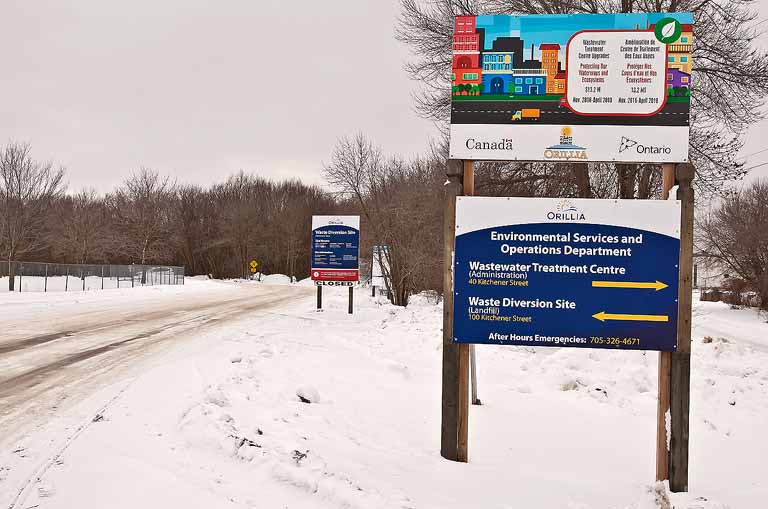
Neither side is able to say when the strike will be over.
“I don’t know. I don’t know where this is going from here,” said Clarke.
Pitts was asked for a metaphor on how far apart the two sides are, Grand Canyon wide, or Humber Creek.
“I’m going to say it’s probably Humber Creek wide,” said Pitts. His counterpart for the City is the director of human resources, Lori Bolton. Pitts says her part in this is not an issue.
“Lori heads the management team. We work very well together,” he said. “I believe Lori has bosses she has to answer to. She has a job to protect as well. I don’t think the bottom line comes from Lori. She can only deal with what she’s given.”
![]()



How Does The Strike Affect You?
From the City’s perspective, people will not feel an effect from the strike.

“I’m very proud of the contingency plan that came together. We have dealt with outside contractors that will certainly do a lot of the winter operation stuff. We’ve redeployed some other City staff and we’ve actually had some people step up in the community, some community partners that have volunteered their services should we need to go there,” said Clarke.
The landfill is open and being run by managers. Garbage collection is contracted so you don’t have to worry about stock piling garbage and recyclables. The water will flow, both ways too.
“There’s some very capable people there right now. A lot of the managers in that area have the certifications necessary to do those operations, so I feel pretty confident they’ll cover it off just fine,” said Clarke.
“We have great confidence in the ability of our management.”
Snow plowing? That might be a different issue. Two sidewalk plows went off the rails Monday morning and had to be rescued from snow banks. There is municipal policy and provincial rules about clearing roads, however it might be best to assume the plows will be playing catch up quite a bit if significant amounts fall. So far Orillia escaped predicted major snow falls the last few days.
(Photos by Swartz – SUNonline/Orillia)

